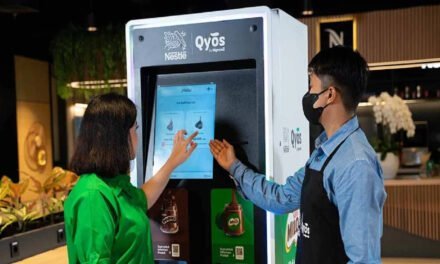Crisis brings opportunities. This was apparent in the FMCG sector in 2020 even as the world grappled with the impact of the Covid-19 pandemic. The sector has learnt, innovated and risen from disruptions to put the worst behind. It is also looking forward to the new year with optimism and new-found confidence.
“2020 has been a year of disruption and learning at the highest level for one and all. As a business and (as a) team, we have come closer, are more aligned, and continue to innovate to meet our consumers’ needs while ensuring the well-being of our people and their families,” said PepsiCo India President Ahmed ElSheikh.
As potential Covid-19 vaccine candidates were expected to hit the market soon, he said, “We are cautiously optimistic that 2021 will witness sustained revival and eventually growth. Our focus areas remain on prioritising profitable channels, diligently managing SKUs (Stock-Keeping Units), further investing in digitisation and driving execution to meet the ever-evolving consumer demand.”.
In 2021, companies would continue to align their product portfolio in line with the ‘new normal’ and work on increasing penetration. Parle Products Senior Category Head Mayank Shah said, “The worst is behind for the FMCG sector. We are expecting next year to be a great one for the entire FMCG industry.” Besides learning lessons in terms of navigating challenging and uncertain times, he said the pandemic also made the FMCG sector carve opportunities out of the crisis.
An HUL spokesperson said, “Looking forward, we are cautiously optimistic that the worst is behind us, we are confident of the medium to long-term growth prospects of the FMCG sector.”
The HUL spokesperson added that the company remained committed to “further strengthen its portfolio of brands through bigger and better innovations and unblinking defence of a strong market leadership position.”
As the Covid-19 pandemic brought to the fore the need for preventive healthcare, FMCG companies also focussed on meeting heightened demand for ayurvedic products. “Ayurveda-based preventive healthcare and hygiene — both personal and household — are gaining prominence in the consumer mind space. People are now more inclined to prophylactic health remedies, especially immunity-boosting products. This trend would sustain, going forward,” Mohit Malhotra, CEO, Dabur India said.
Acharya Balkrishna, MD, Patanjali Ayurved echoing similar views saying, “This pandemic has helped to create faith in Ayurveda and Yoga among the section which does not believe in it. This is an opportunity for us as people are now having faith in Ayurveda and traditional system.”
One of the biggest outcomes of the Covid-19 pandemic is the acceleration in the adoption of digital medium by FMCG companies, not just for distribution but also for marketing and advertising, Mayank Shah said. Earlier, the estimation was that the contribution of digital channel in the total FMCG market would be around 10 per cent in the next ten years but it could now be achieved in the next three to four years, he added.
Deloitte India Partner and Consumer Leader Porus Doctor said, “One significant feature of this lockdown and post lockdown scenario was a tectonic shift towards online and e-commerce, a trend that is here to stay.”
According to EY Partner and National Leader (Consumer Products and Retail) Pinakiranjan Mishra, companies would accelerate their adoption of the digital medium to improve internal efficiency and connect with their business partners and consumers.
Another development that has been working in favour of the FMCG sector going forward is the recovery of the urban market. Marico CFO Pawan Agrawal said demand was continuing to recover with improved urban consumer sentiment and rural continued to fare well.
In 2020, FMCG companies have planned to continue to invest in the segment by introducing more nature-based products in their personal care and food segment. “We will continue to align our product portfolio in line with the ‘new normal’. Going forward, the packaged food market in India which is about $35 billion is expected to be about $70 billion by 2025. This is possible with increasing penetration, increasing proclivity of consumers towards more credible, more transparent, trustworthy, and scientifically-better modulated brands,” a Nestlé India spokesperson said.














